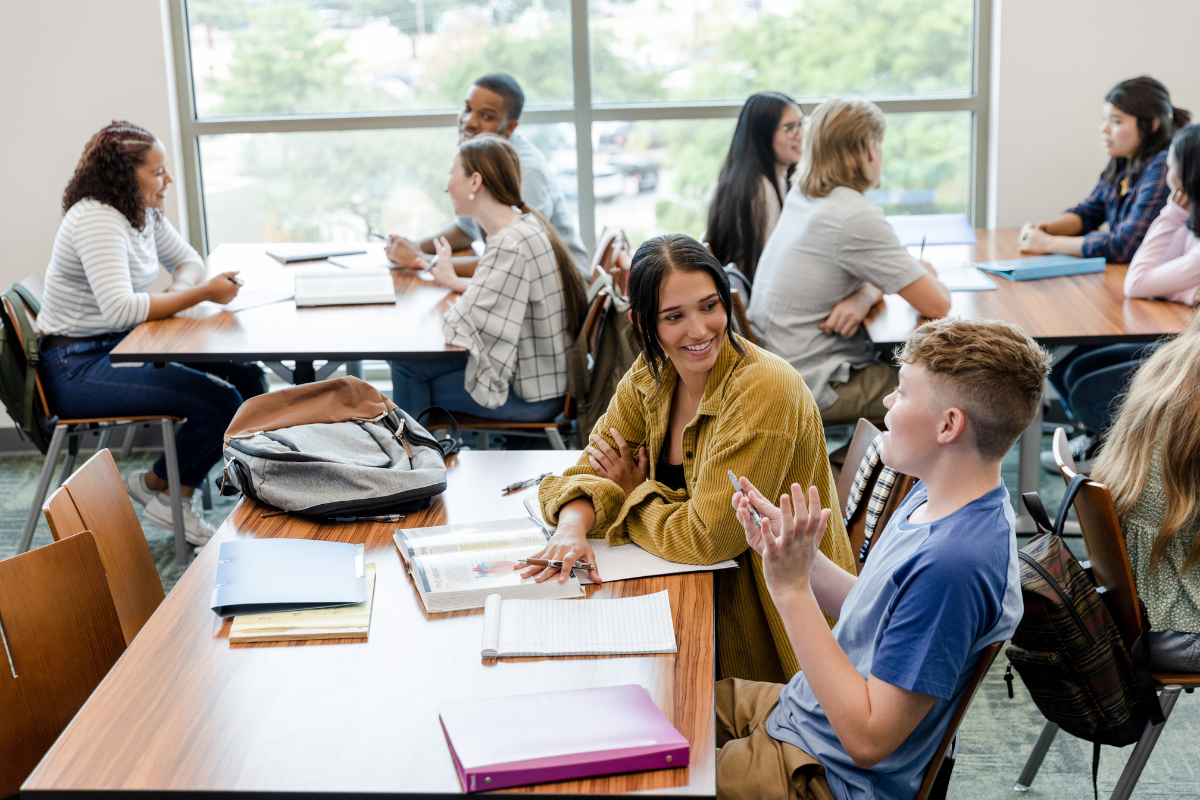Highlights from the 2023 EDUCAUSE Horizon Report
Two of the co-authors of the most recent Horizon report from EDUCAUSE say two key themes that emerged this year were flexibility and student-centered learning. Students are asking if institutions provide the flexibility they need, and new technologies like AI are reinforcing the need to design teaching and learning around the student experience.
Flexibility and centering students helps colleges and universities move closer to making education equitable for all students, say Kathe Pelletier, Director, Teaching and Learning Program at EDUCAUSE, and Jenay Robert, Senior Researcher at EDUCAUSE. But, as Robert points out, “Not everybody has the support they need when learning in a hybrid modality.”
She also notes that while AI can create more learning opportunities for more students, it also has the potential to harm. Students with disabilities, low socioeconomic status, or language barriers may be misunderstood or excluded by AI tools.
The 2023 EDUCAUSE Horizon Report: Teaching and Learning Edition profiles emerging trends, technologies, and practices shaping teaching and learning and envisions several possible future scenarios and implications. Horizon Reports going back to 2005 have explored issues such as privacy and data security. The 2023 EDUCAUSE Horizon Report synthesizes the input of more than 60 higher education leaders who discussed and voted on the key trends in higher education and the technologies and practices that are anticipated to impact those trends. In addition to AI, this year’s report explores trends in hyflex learning, microlearning, microcredentials, and technologies that support students’ sense of connectedness and belonging.
Future scenarios
One section of the report outlines four scenarios that might result from those trends.
- Growth is a scenario in which institutions of higher education continue on their current trajectories. For example, hybrid learning programs may continue rapid and unconstrained growth without any improvement in equitable access.
- Constraint is a scenario in which higher education reorganizes itself around a core guiding value or principle that drives decision making and daily practices. For example, climate change may force institutions to shift priorities and to optimize for flexibility.
- Collapse is a scenario in which higher education has experienced a series of breakdowns and widespread changes that decimate many institutions. For example, technology and economic changes may reduce the need for formal higher education.
- Transformation is a scenario in which society fundamentally shifts its expectations of higher education. For example, with AI transforming work and political engagement, the public may value a population with high-level creativity, collaboration, and innovation skills.
“This is not a crystal ball,” Pelletier explains. “The scenarios all take the same ingredients and make four different meals from them. We were very data driven, leveraging foresight practices and methodologies, and that’s what makes the report a powerful tool.”
The scenarios section is followed by seven response essays exploring the findings and their possible implications from different expert perspectives. The implications section covers topics such as learning spaces, equity and accessibility, digital connectivity, adult learners, innovation in research and teaching, and technology trends in under-resourced institutions.
Student-centered learning
Robert appreciates that the 2023 EDUCAUSE Horizon Report expert panel focused on centering the student experience. “They pointed out that there’s a growing student demand for flexible learning modalities,” she explains. “There’s a lot of buzz about hybrid learning and online options, yet our panelists are talking about how technology can be used in that way to mold our pedagogical practices and support students.”
Pelletier says that while the themes in the report reveal the need for flexibility and student-centered teaching and learning, many faculty still see themselves at the center of higher education. Momentum toward equity requires faculty making a shift toward designing for student needs and even for their individual goals.
Anticipating AI
Interestingly, the expert panel informing the 2023 EDUCAUSE Horizon Report met in November 2022, just before the release of the AI platform ChatGPT accelerated wide public interest in AI. Nevertheless, the role of AI in higher education was a big part of those discussions, showing up not only in the discussion of trends but twice more the chapter on key technologies and practices — AI for personalized learning and the implications of generative AI.
The report acknowledges that generative AI has the capacity to make misinformation seem persuasively real and that some faculty are responding to the broad accessibility of generative AI by prohibiting or tightly controlling its use in the classroom.
Pelletier believes AI could enable more active learning, authentic assessment, and other engaging teaching practices. “There is a groundswell of faculty who are saying, ‘Finally, I get to be creative,’” she says.
Robert notes that educators are having a very human reaction to the emergence of AI. “It’s causing us to ask what the role of the teacher is,” she explains. “If there are a host of activities generative AI can accomplish, what do we want students to learn in a semester or in four years? With disruption comes an opportunity to teach in a genuinely student-focused and equitable way.”
Browse the Every Learner Everywhere resource library


